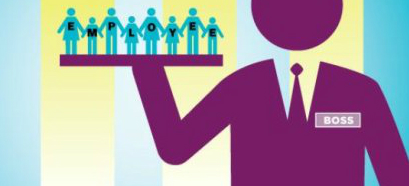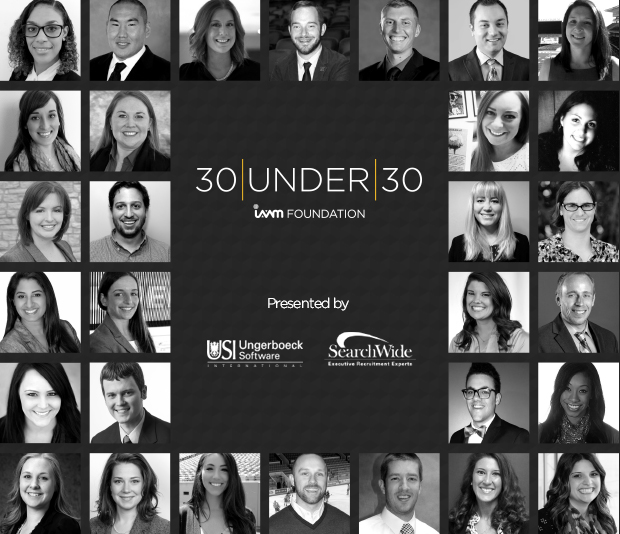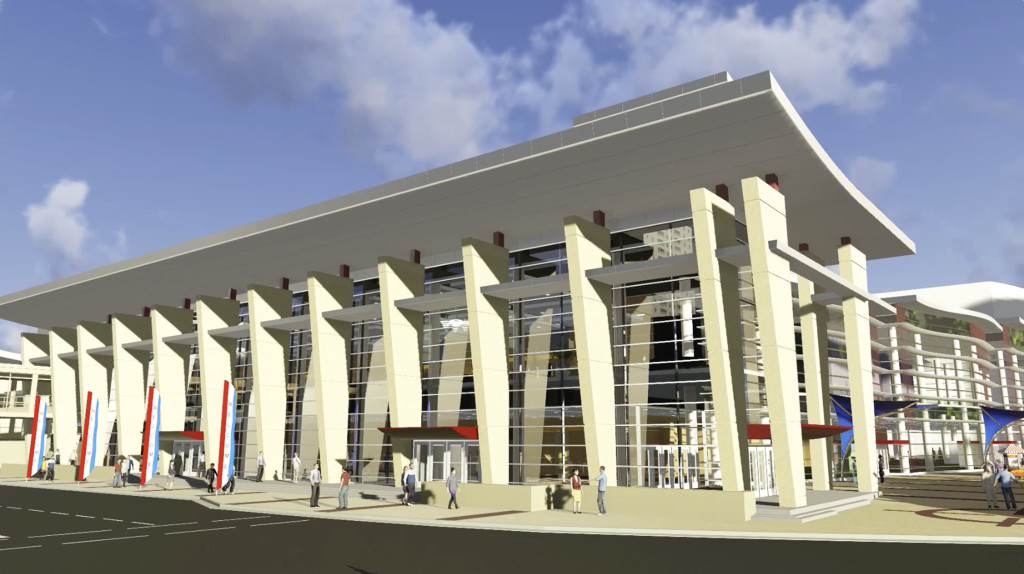HOK and USL Launch Stadium Development Initiative
HOK has announced a multi-year partnership with the United Soccer League (USL). HOK will lead a stadium development, design, and standards initiative supporting the league’s strategic initiative to house all USL clubs in soccer-specific stadiums across North America by the end of the decade.
“The groundbreaking partnership with HOK provides the league and its clubs a tremendous partner with extensive stadium design and development experience at the highest level,” said USL President Jake Edwards in a statement. “A critical part of our strategic growth plan is to have all USL clubs as owners or primary tenants of soccer-specific stadiums by 2020. Not only will these new and upgraded stadiums add value to the league and each club ownership group, they will establish a permanent base for the clubs within their local communities. These venues will serve as cultural hubs and bring fans together in support of the clubs while offering state-of-the-art amenities and an unparalleled game-day experience.”
HOK is the league’s official stadium design partner and will apply its venue design expertise to guide soccer-specific stadium development for expansion clubs and the renovation of current USL stadiums to increase capacities and amenities. HOK will also consult to the league and its clubs on maximizing venue revenue, developing ancillary programming, and creating operational efficiencies.
“This partnership reflects the USL’s commitment to expanding the soccer community across the country and providing fans a high-quality event experience that captures the energy and excitement of the game,” said Brad Schrock, HOK’s director of Sports + Recreation + Entertainment, in a statement. “We are passionate about soccer and excited to be a partner to the USL as the league continues to grow. This initiative will provide the framework to ensure that venues are successful for the team, the players, the fans and their communities.”
HOK’s portfolio of work includes the recently opened Avaya Stadium for Major League Soccer’s San Jose Earthquakes; a newly designed multipurpose stadium in Atlanta, which will be home to a MLS expansion franchise and the National Football League’s Atlanta Falcons; the renovation of Sun Life Stadium for the NFL’s Miami Dolphins; the proposed St. Louis NFL Stadium on the North Riverfront area of downtown St. Louis, which is designed to accommodate FIFA and MLS matches; and the renovation of the AT&T Center for the National Basketball Association’s San Antonio Spurs.
To learn more about soccer’s increasing popularity in the U.S., please read our FM feature, “Major League Soccer’s Resurgence.”
(Image: Christy Radecic)
The IAVM Foundation is Proud to Announce the Inaugural 30|UNDER|30 Class of 2015
Thanks to the generous support of SearchWide and Ungerboeck Software International, 30 young professionals, 30 years of age and under, will receive full complimentary registration to VenueConnect in Baltimore, a travel stipend of $850, and a one-year complimentary Young Professional IAVM Membership.
“Identifying and developing future leaders is an important priority, and IAVM has stepped up to the plate in a big way with this initiative. Venue management is an exciting and challenging career path, and it is crucial we prepare this group for the complexities of leading this industry forward,” said Mark Gnatovic, senior vice president of SearchWide and a Foundation Trustee. “Having access to industry education and industry leaders will create significant learning opportunities for these individuals. I’m looking forward to meeting the 2015 IAVM 30|UNDER|30 inaugural class.”
In addition to over $2,000 in benefits, the 30|UNDER|30 recipients will be recognized at the Venue Industry Awards Luncheon at VenueConnect on Monday, August 3. They will also be provided year-round continued education for professional growth in the venue industry to help program participants become better, more productive employees through increased access and exposure to industry networking and thought leadership.
As part of the Build an Amazing Future campaign focused on students, young professionals, and mid-level venue management, the IAVM Foundation’s Board of Trustees are thrilled to see this program come to life.
“On behalf of the IAVM Foundation’s Board of Trustees and committed donors, we are honored to announce the inaugural 30|UNDER|30 class of 2015,” said Jason Rittenberry, CFE, president and CEO of IRG Sports + Entertainment and chair of the IAVM Foundation. “We are truly building amazing futures for some of the top rising stars in the industry!”
Over the next few weeks, we’ll individually spotlight this year’s recipients. For now, let’s meet the IAVM Foundation’s inaugural 30|UNDER|30 class of 2015:
| Natalie Barrow Director of Arts Education & Community Outreach Cobb Energy Performing Arts Centre |
Sari Feinstein Programming Assistant Wells Fargo Center for the Arts |
Derrick Palms Executive Lead Kennesaw State University Night Owl Productions |
| McKell Bennett Assistant Marketing Director Adams Center – University of Montana |
Sarah Fieger House & Volunteer Services Manager Tobin Center for the Performing Arts |
Nathaniel Porter Senior Event Manager BOK Center |
| Whitney Bishop Marketing Manager Richmond Coliseum, Carpenter Theater, Altria Theater |
Joe Giordano Booking & Marketing Manager Santander Arena & Performing Arts Center |
Brittanie Roldan Director of Guest Services Prudential Center & New Jersey Devils |
| Matthew Boring Marketing & Sales Manager Lied Center for Performing Arts |
Jacquelyn Holowaty Vice President, Ticketing Global Spectrum |
McKenzie Rowley Premium Seating & Suite Sales Manager NRG Park |
| Danny Bryant Arena & Pavilion Services Manager The Classic Center |
Ashley Keen Technical Director Mesa Arts Center |
Alicia Ruach Event Operations Coordinator Maple Leaf Sports & Entertainment |
| Jason Burnette Sales Manager Cox Business Center |
Nikki Lekhy Program Associate Cultural Tourism DC |
Annie Salamunovich Assistant Production Supervisor Portland’5 Centers for the Arts |
| Sandi Carretero Operations & Events Manager McLane Stadium |
Sean Loyst Assistant Supervisor, Events & Guest Services Kitchener Memorial Auditorium |
Jena Schaafsma Assistant Director, Event Booking & Marketing MetLife Stadium |
| Dani Cole Sales Manager Tacoma Dome and Greater Tacoma Convention & Trade Center |
Siroun Majarian Market Research Analyst Massachusetts Convention Center Authority |
Andrew Shreve Assistant Box Office/Parking Manager Greater Richmond Convention Center |
| Laura Doyle Guest Relations & Event Security Manager Chesapeake Energy Arena & Cox Convention Center |
Kelsey Metzger-Covart Sales & Events Manager Ames Center |
Abbie Vander Bol Event Supervisor Show Me Center |
| Bill Enkhbayar Event Manager Boardwalk Hall |
Michael Owens Director of Booking BOK Center |
Caitlin Volpe Event Coordinator AT&T Performing Arts Center |
Why Servant Leadership Matters
 A new study from the University of Illinois at Chicago shows that when bosses put their employees’ needs over their own needs, customer satisfaction and job performance by employees improves.
A new study from the University of Illinois at Chicago shows that when bosses put their employees’ needs over their own needs, customer satisfaction and job performance by employees improves.
“The best business leadership style is far from, ‘Do this. Don’t do that,'” said Sandy Wayne, one of the study’s researchers. “A servant leader looks and sounds a lot more like, ‘Is there anything I can do to help you?’ Or, ‘Let me help you….’ Or, ‘What do you need to…?’ This approach helps employees reach their full potential.”
Employees admire bosses who care about them and return that admiration with great teamwork, loyalty, and dedication to an organization.
“It’s contagious. The employees see their leaders as role models and often mimic those qualities, creating a culture of servant leadership,” Wayne said. “This serving culture drives the effectiveness of the business as a whole.”
The researchers conducted the study at the Jason Deli’s national restaurant chain and included 961 employees at 71 restaurants in 10 metropolitan areas. Wayne said that the restaurants with servant leaders experienced a 6 percent higher job performance, an 8 percent more customer service behaviors, and a 50 percent less likely to leave the company from employees.
(Image: UIC Business)
A $79 Million Expansion of the Mayo Civic Center is Under Way
I just had the following press release come across my desk featuring news from an IAVM member venue. Are you a member venue that has news to share? Please send it our way at editor@iavm.org, and we’ll publish it here on the blog or in our weekly newsletter (sometimes both places!).
Now, on to the news.
Work is under way on a $79 million expansion of the Mayo Civic Center in Rochester, Minnesota, set to debut in 2017. When complete, the expansion will nearly double the size of the center’s meeting and event facilities.
The expansion will bring the total amount of space at the Mayo Civic Center to more than 200,000 square feet—enough to host two 1,000-person events simultaneously. A new 40,000-square-foot Grand Ballroom will offer a seating capacity of more than 4,000 people, a ceiling height of 32 feet, and high-end finishes. A state-of-the-art kitchen and expanded food service facilities will also be included in the expanded Mayo Civic Center.
The center will feature a 25,000-square-foot exhibit hall, a 25,000-square-foot arena, a 12,000-square-foot auditorium, and 23 breakout rooms.
“The vision behind the expansion is focused on creating regional economic impact, broadening facility usability and services, and meeting the public assembly needs of a growing and thriving community,” said Donna Drews, executive director of the Mayo Civic Center. “Mayo Civic Center’s 188,000-square-foot convention center will broaden Rochester’s convention and meeting marketability, and free up existing facilities for concerts and entertainment—a key goal of the convention center expansion planners.”
San Francisco Bans Smokeless Tobacco at Sports Venues
Don’t even think twice about chewing tobacco at a sports venue in San Francisco. Starting Jan. 1, 2016, that pursuit will be against the law.
“Mayor Ed Lee on Friday signed into law an ordinance to prohibit the use of smokeless tobacco at athletic venues, specifically singling out baseball, which has a long history of players masticating and spitting tobacco juice in view of children who worship them,” the Associated Press reported.
The law is the first of its kind in the U.S. and includes electronic cigarettes and “moist inhalable snuff.” Violators will be asked to leave the playing fields.
“The home of the World Champion Giants has set an example that all of Major League Baseball and the rest of the country should quickly follow,” said Matthew L. Myers, president of the Campaign for Tobacco-Free Kids, in a statement. “When baseball stars use smokeless tobacco, the kids who look up to them are much more likely to as well. Our national pastime should have nothing to do with promoting a deadly and addictive product.”
Major League Baseball said it supports San Francisco’s efforts to ban smokeless tobacco, while the player’s union said that it’s aware of the law and no public comment at this time.
(Image: Eric/Creative Commons)
Do you want to receive a Front Row News weekly digest?
Categories
- Allied (856)
- Architecture (147)
- Arenas (744)
- Career (890)
- Convention Centers (889)
- Education (608)
- Events (1,528)
- Food & Beverage (193)
- Foundation (113)
- Guest Experience (1,482)
- Industry News (2,253)
- Leadership (1,872)
- Marketing (150)
- Membership (1,985)
- Music (212)
- Performing Arts Centers (453)
- Professional Development (398)
- Research (127)
- Safety & Security (425)
- Sports (763)
- Stadiums (607)
- Student (159)
- Technology (515)
- Ticketing (92)
- Touring (82)
- Trends (357)
- Uncategorized (771)
- Universities (216)
- Video (25)
- Young Professional (198)
Twitter Feed
- Twitter feed loading
Recent Posts
- GEODIS Park Selects Allied Universal As Its Preferred Event Services Provider
- Venuworks Appoints Marc Solis as Executive Director of the Fresno Convention and Entertainment Center
- Los Angeles Convention Center Diverts 8,000 Pounds of Wood Waste to Local Foundation Supporting Fire Victims
- Fort Worth Unveils Plans for Phase 2 of Convention Center Transformation
- San Diego Convention Center CEO Announces Retirement After a Decade of Leadership
Categories
- Allied
- Architecture
- Arenas
- Career
- Convention Centers
- Education
- Events
- Food & Beverage
- Foundation
- Guest Experience
- Industry News
- Leadership
- Marketing
- Membership
- Music
- Performing Arts Centers
- Professional Development
- Research
- Safety & Security
- Sports
- Stadiums
- Student
- Technology
- Ticketing
- Touring
- Trends
- Uncategorized
- Universities
- Video
- Young Professional
Archives
- February 2026
- January 2026
- December 2025
- November 2025
- October 2025
- September 2025
- August 2025
- July 2025
- June 2025
- May 2025
- April 2025
- March 2025
- February 2025
- January 2025
- December 2024
- November 2024
- October 2024
- September 2024
- August 2024
- July 2024
- June 2024
- May 2024
- April 2024
- March 2024
- February 2024
- January 2024
- December 2023
- November 2023
- October 2023
- September 2023
- August 2023
- July 2023
- June 2023
- May 2023
- April 2023
- March 2023
- February 2023
- January 2023
- December 2022
- November 2022
- October 2022
- September 2022
- August 2022
- July 2022
- June 2022
- May 2022
- April 2022
- March 2022
- February 2022
- January 2022
- December 2021
- November 2021
- October 2021
- September 2021
- August 2021
- July 2021
- June 2021
- May 2021
- April 2021
- March 2021
- February 2021
- January 2021
- December 2020
- November 2020
- October 2020
- September 2020
- August 2020
- July 2020
- June 2020
- May 2020
- April 2020
- March 2020
- February 2020
- January 2020
- December 2019
- November 2019
- October 2019
- September 2019
- August 2019
- July 2019
- June 2019
- May 2019
- April 2019
- March 2019
- February 2019
- January 2019
- December 2018
- November 2018
- October 2018
- September 2018
- August 2018
- July 2018
- June 2018
- May 2018
- April 2018
- March 2018
- February 2018
- January 2018
- December 2017
- November 2017
- October 2017
- September 2017
- August 2017
- July 2017
- June 2017
- May 2017
- April 2017
- March 2017
- February 2017
- January 2017
- December 2016
- November 2016
- October 2016
- September 2016
- August 2016
- July 2016
- June 2016
- May 2016
- April 2016
- March 2016
- February 2016
- January 2016
- December 2015
- November 2015
- October 2015
- September 2015
- August 2015
- July 2015
- June 2015
- May 2015
- April 2015
- March 2015
- February 2015
- January 2015
- December 2014
- November 2014
- October 2014
- September 2014
- August 2014
- July 2014
- June 2014
- May 2014
- April 2014
- March 2014
- February 2014
- January 2014
- December 2013
- November 2013
- October 2013
- September 2013
- August 2013
- July 2013
- June 2013
- May 2013
- April 2013
- March 2013
- February 2013
- January 2013
- May 2012
- March 2012
- December 2011
- November 2011
- October 2011
Recent Comments
- Frank Bradshaw, Ph.D., CVE on John Meyer, CVE, a Tireless Advocate of Certification for Venue Professionals, Has Died
- Neil Sulkes on Hilary Hartung, Friend to Many in Venue Marketing, Has Left Us
- Jason Parker, CVE on The Devastation of Hurricane Helene and How We Can Support One Another
- Larry Perkins on Touhey Testifies Against Speculative Ticketing Before Congressional Subcommittee
- Peter Secord on Major Players for Planned Elkhart Amphitheater Were in the Mix at VenueConnect




